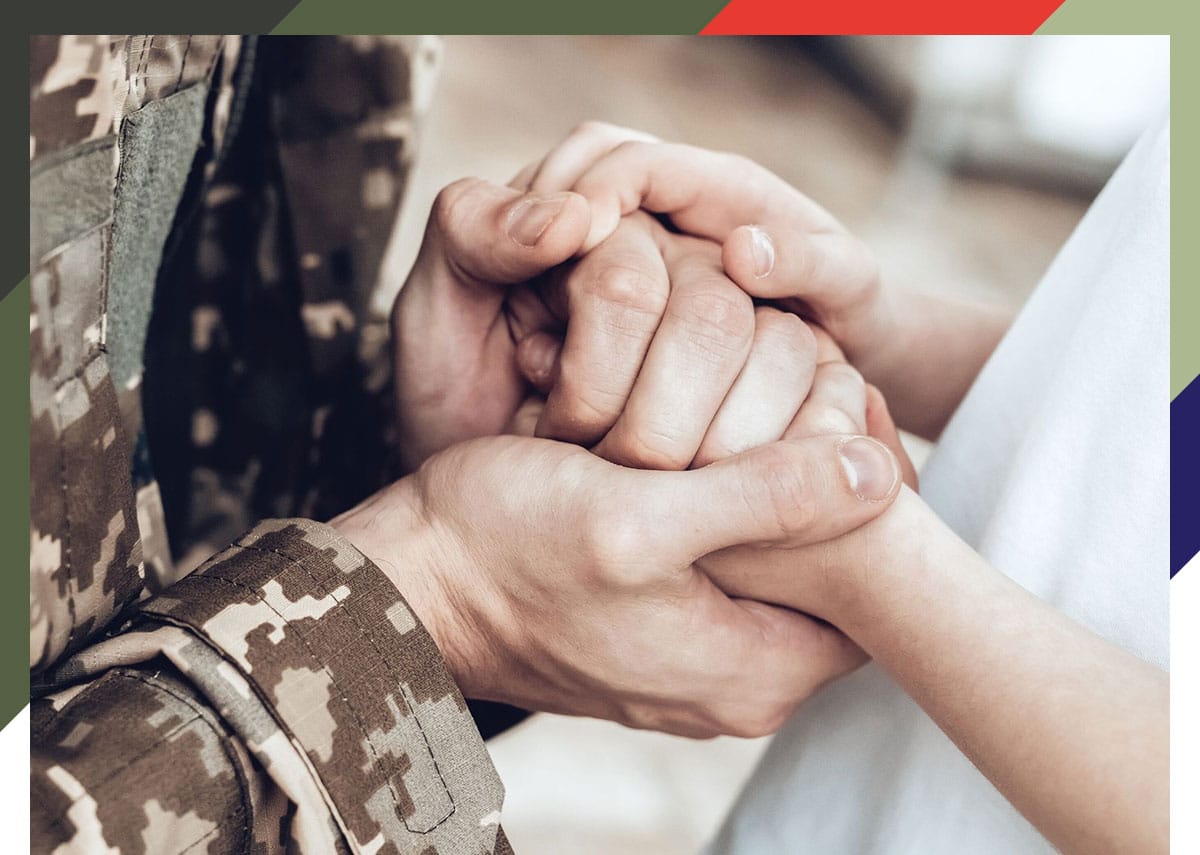It’s a Common Mental Health Issue that Affects Many
Posttraumatic Stress Disorder (PTSD) is a mental health problem some people develop after experiencing or witnessing a life-threatening event, like military combat. It’s perfectly normal to have upsetting memories, emotional reactions, or issues falling asleep after such traumatic events. Some people feel better within a few months, but people who have prolonged symptoms might have PTSD.
Frequency of PTSD in Military Veterans
It’s very common for members of the armed forces to develop PTSD. No one should ever feel alone for struggling with it. In fact, according to Veterans Affairs, between 11 and 20 percent of every 100 veterans of Operation Iraqi Freedom and Operation Enduring Freedom have PTSD.
PTSD didn’t start during these most recent times of war, however. Twelve percent of veterans of the Gulf War, also called Desert Storm, have been diagnosed with PTSD. And even as far back as the Vietnam War, about 15 percent were diagnosed in the late 1980s, but today it’s estimated that 30 percent of Vietnam veterans have had PTSD in their lifetime.
Who Can Develop PTSD?
Anyone can develop PTSD at any point in their lives, even from a very young age, if they’ve experienced a long-lasting or short, but very intense traumatic event. Risk of developing PTSD is heightened if the person does not get immediate or appropriate care after the trauma, or if they don’t have enough social support. Of course, it’s possible even with these in place, a person can still develop PTSD, and it isn’t their fault at all.
What Are the Symptoms of PTSD?
There are generally four types of PTSD symptoms, and not everyone will experience them in the same way.
1.Reliving the event, which can cause feelings of fear, nightmares, or the sense that you’re experiencing the event all over again.
2. Avoiding situations that serve as reminders of the trauma, such as not talking about the event, avoiding crowds or driving, or whatever else may remind you of what happened.
3. Experiencing negative changes in your emotions or beliefs, such as no longer having loving feelings toward other people, or taking on a negative worldview.
4. Feeling hyper-aroused, also known as feeling overstimulated. The VA refers to this as “feeling keyed up.” This sometimes causes you to feel very irritable, lose sleep, have trouble concentrating, or startle easily.
PTSD Treatments
The most successful PTSD treatments are trauma-focused psychotherapies. This type of treatment helps to process traumatic experiences.
The VA uses:
- -Prolonged Exposure: teaches those with PTSD to face their negative feelings, including talking about the trauma.
- -Cognitive Processing Therapy: teaches those with PTSD to reframe their negative thoughts about the trauma and focuses on discussing negative thoughts.
- -Eye Movement Desensitization and Reprocessing: helps make sense of trauma by thinking about the trauma while paying attention to back-and-forth movement or sound (like a finger waving side to side, or a single tone).
How Can I Support Someone with PTSD?
If your loved one is suffering with PTSD, there are a few ways you can help support them.
- -Don’t force them to talk about their trauma if they don’t want to.
- -Anticipate their triggers. For example, if you know a certain sound will trigger a negative memory of the traumatic event, prepare for the trigger. Come up with a plan with your loved one about what you can do when they experience a trigger.
- -Do normal things in a normal routine. Don’t avoid everyday actions, stop planning vacations, or cease normal functions. A sense of normalcy goes a long way in helping those with PTSD.
- -Remain calm during emotional outbursts and let your loved one know they are safe.
- -Meet with your loved one’s mental health providers to learn how you can help in their specific situation.
Why My Hero Crate Cares About PTSD
My Hero Crate cares deeply about our service men and women and works every day to help enhance their lives, not just through creating special care packages for the military, but also by donating proceeds to veteran-backed organizations. We understand that mental health issues can be difficult to manage, and we hope our work will be a light in the dark for those who benefit from the organizations we support. Shop our military care packages to send to your favorite hero.
